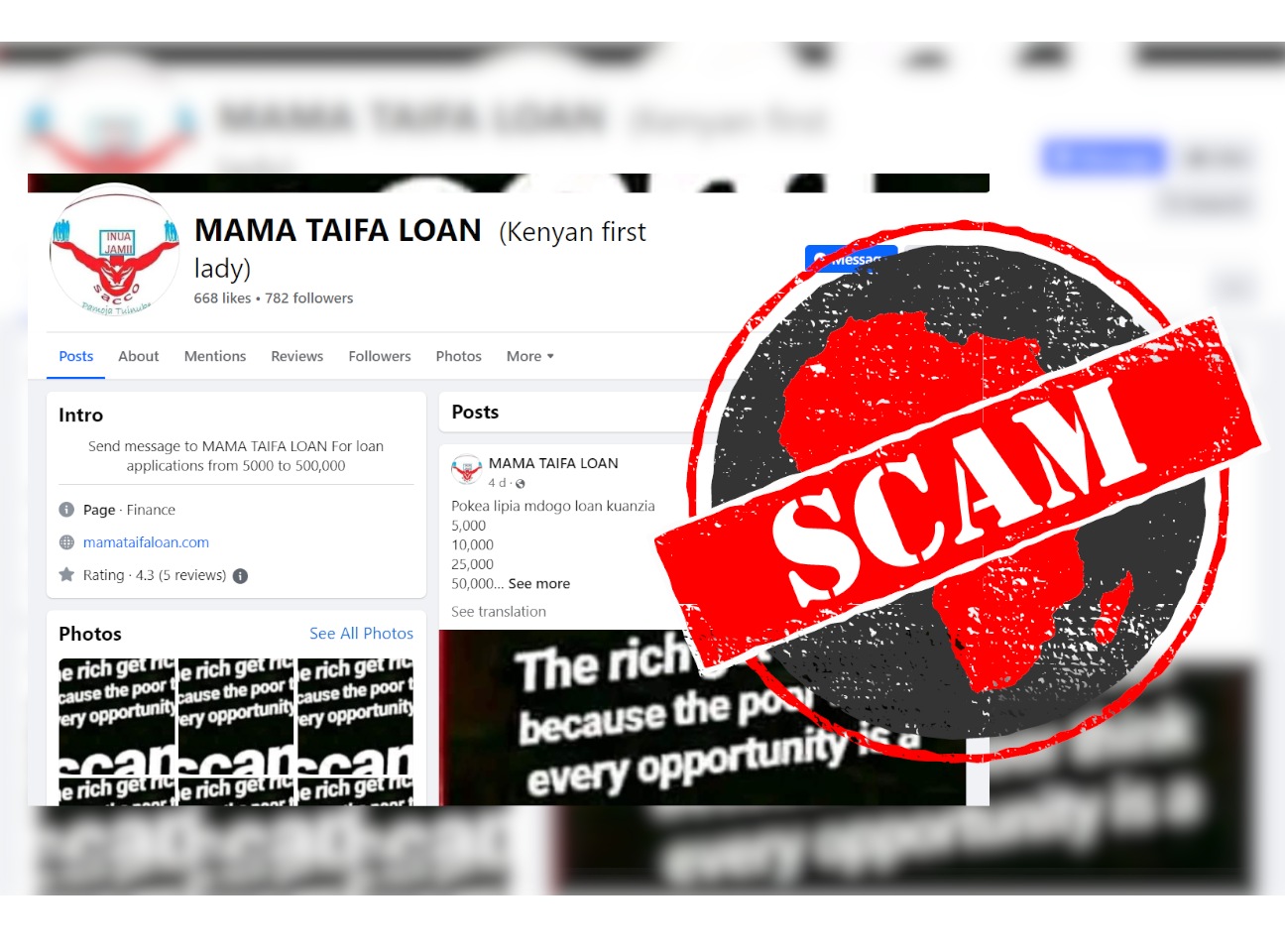IN SHORT: Africa Check has previously debunked Facebook pages and posts making loan offers in the name of Kenya’s first lady Rachel Chebet Ruto. She’s still not giving out loans or other favours on social media, despite what this page would want you to believe.
The Facebook page MAMA TAIFA LOAN would have you believe it is run by Kenyan first lady Rachel Chebet Ruto.
It uses the name “MAMA TAIFA” to run loan offers on Facebook. “Mama taifa” is a Kiswahili term for “first lady” and is currently used to refer to Chebet Ruto, the wife of Kenyan president William Ruto.
The page’s profile picture features a logo with the name Inua Jamii, a Kenyan government programme that gives cash grants to poor and vulnerable people. “Inua Jamii” is Kiswahili for “uplift the community”.
As though to goad Facebook users it uses a cover photo with the phrase “the rich get richer because the poor think every opportunity is a scam”.

The page’s posts have been reposted hundreds of times.
They appear here, here, here, here, here, here, here, here, here and here.
But is the page and its offers legit? We checked.
Scam page and offers
The page features a logo with the name “Inua Jamii sacco” in its profile picture. A savings and credit co-operative society, or sacco, is a member-based financial institution popular in Kenya. We scoured the internet and found no sacco in the country with that name. This is a sign the page is not legit.
It is also unlikely to be related to the Inua Jamii government programme since the programme has repeatedly stated that it does not give out loans, but rather cash grants. The programme's official Facebook page does not post any loan offers.
The first lady’s official Facebook page, Mama Rachel Ruto, is verified and has over 1 million followers. No such loan offers have been posted on her page.
All signs point to a fake Facebook account with scam offers.
To help protect yourself against online fraudsters, see Africa Check’s guide to Facebook scams and how to spot them.
Republish our content for free
For publishers: what to do if your post is rated false
A fact-checker has rated your Facebook or Instagram post as “false”, “altered”, “partly false” or “missing context”. This could have serious consequences. What do you do?
Click on our guide for the steps you should follow.
Publishers guideAfrica Check teams up with Facebook
Africa Check is a partner in Meta's third-party fact-checking programme to help stop the spread of false information on social media.
The content we rate as “false” will be downgraded on Facebook and Instagram. This means fewer people will see it.
You can also help identify false information on Facebook. This guide explains how.




Add new comment